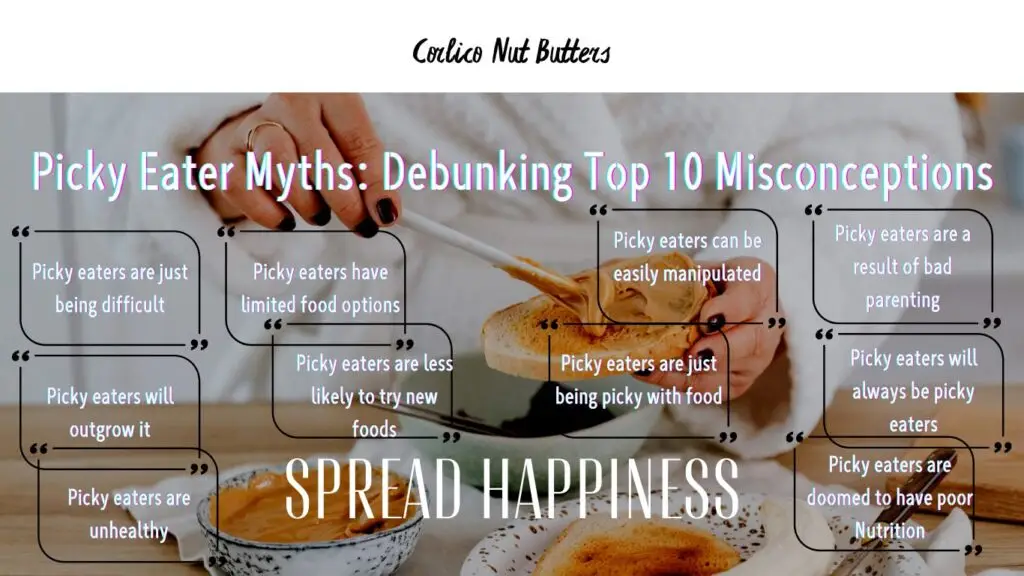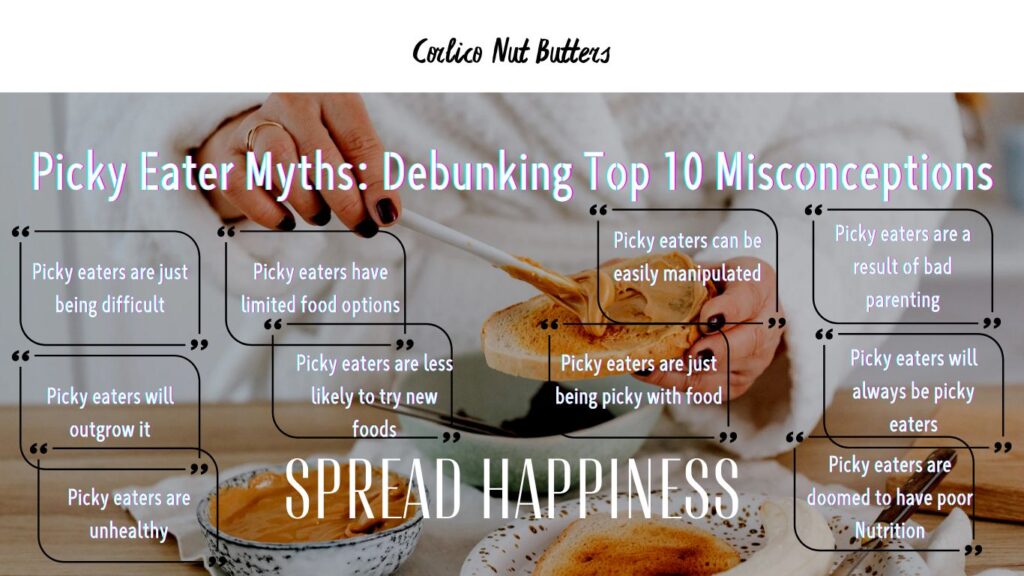We use affiliate links. If you purchase something using one of these links, we may receive compensation or commission.
Feeding a picky eater can feel like navigating a culinary minefield. Well-intentioned parents and caregivers often need more clarification about what’s best for children’s Nutrition. In this post, we debunk the top ten myths surrounding picky eaters, armed with expert insights and real-life stories.

Introduction
Picky eating is a phase many children go through, leaving parents anxious about their nutritional intake and struggling with mealtime battles. But how much of what we believe about picky eating is based on fact?
Myth 1: Picky eaters are just being difficult
The presumption that children are deliberately fussy often leads to friction at mealtime. Dr. Jane Smith, a Pediatric Dietitian, clarifies, “Picky eating is often a response to sensory sensitivities. It’s crucial to understand the child’s sensory world and provide a comfortable eating environment.”
Myth 2: Picky eaters will outgrow it
While some children eventually become less selective, assuming all will outgrow pickiness can lead to inaction. A nutritionist shared her child’s journey, revealing consistent effort and gentle encouragement was vital in overcoming picky eating habits.
Myth 3: Picky eaters are unhealthy
Sarah Lee, a Certified Nutritionist, offers reassuring words, “Nutrition for kids isn’t about perfection, it’s about progression. Don’t worry if your child isn’t eating a balanced diet daily; aim for balance over time.”
Myth 4: Picky eaters have limited food options
Picky eating doesn’t mean a lifetime sentence of bland or limited foods. Introducing a variety of foods in a no-pressure context can encourage exploration.
Myth 5: Picky eaters are less likely to try new foods
It’s about creating a positive food environment; strategies such as involving children in meal prep can provide a sense of control and make them more open to trying new things.
Myth 6: Picky eaters can be easily manipulated
Forcing a child to eat can lead to power struggles. One parent’s story highlighted the importance of respecting their child’s appetite and promoting healthy, stress-free eating habits.
Myth 7: Picky eaters are just being picky with food
Sensory issues often play a crucial role in picky eating. Consulting a sensory expert can be instrumental in understanding and addressing these challenges.
Myth 8: Picky eaters are a result of bad parenting
This unfair myth adds guilt and pressure. Parenting styles differ, and how children relate to food is complex and multifaceted—not a mere reflection of parenting skills.
Myth 9: Picky eaters will always be picky eaters
Being consistent and patient can lead to gradual improvements. An example of a family that revolutionized their eating habits shows that expanding food preferences is possible.
Myth 10: Picky eaters are doomed to have poor Nutrition
Balanced meals can still be achieved. Dr. Michael Johnson, a Child Psychologist, advises, “The ‘one bite’ rule can have unintended consequences. Children should feel in control of their eating, so pressure to eat should be avoided.”
Conclusion
Picky eating is not to be underestimated—it takes patience, understanding, and often a sprinkle of creativity to overcome. Today’s careful guidance can blossom into tomorrow’s appreciation for various healthy foods.
Parents, remember that you’re not alone. Armed with the truths behind these top 10 myths, you’re one step closer to supporting your picky eaters on their journey to becoming adventurous and possibly even enthusiastic eaters. Keep the journey joyful, and steady progress will follow.
Check out our resources for more Picky Eater Tips success stories debunking Kids’ Nutrition Myths, and join the community striving towards Healthy Family Eating.













